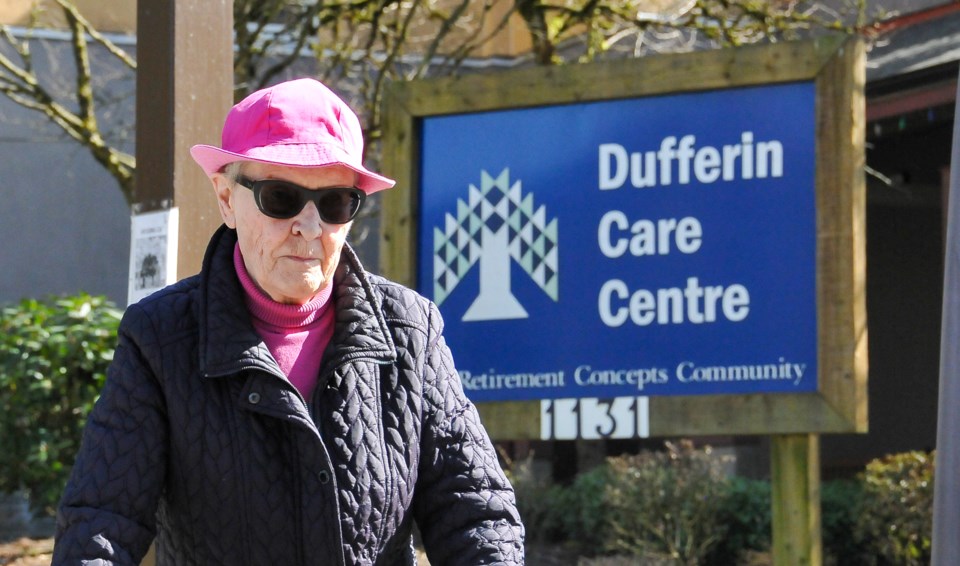A COVID-19 outbreak at a Coquitlam long-term care home, which had claimed the lives of four residents, has been declared over by the regional health authority.
Fraser Health announced the end of the outbreak at Dufferin Care Centre in a written statement Thursday morning.
“With the implementation of comprehensive strategies to prevent and respond to COVID-19 in care facilities, there are no longer any COVID-19 cases at this site,” wrote a spokesperson for Fraser Health.
First reported March 20, the Dufferin Care Centre had become the site of the largest publicly-acknowledged COVID-19 outbreak at a care home or assisted living facility in the Tri-Cities. Over 20 people were at one point infected at the facility, including 14 residents and eight staff.
Another outbreak at the Shaughnessy Care Centre in Port Coquitlam was declared over April 22 following 14 days without a new case, but not before the novel coronavirus took one resident’s life and infected at least three others.
Despite the end of the outbreaks at the two seniors homes, the residents remain on a mandatory lockdown in line with an order from public health officials.
The ongoing risk to seniors homes was further highlighted Thursday, after The Cedars, an assisted-living home in Mission, was revealed as the latest outbreak at a seniors home in the health region.
When asked why — following rigorous measures meant to keep the virus and visitors out of homes — the virus kept popping up in seniors homes, Fraser Health’s top doctor, Dr. Martin Lavoie, said staff and subcontractors live in the community, and that at some level the coronavirus is still circulating there.
"We are screening people," said Lavoie. "[But] sometimes we can't identify the exact source of the infection."



